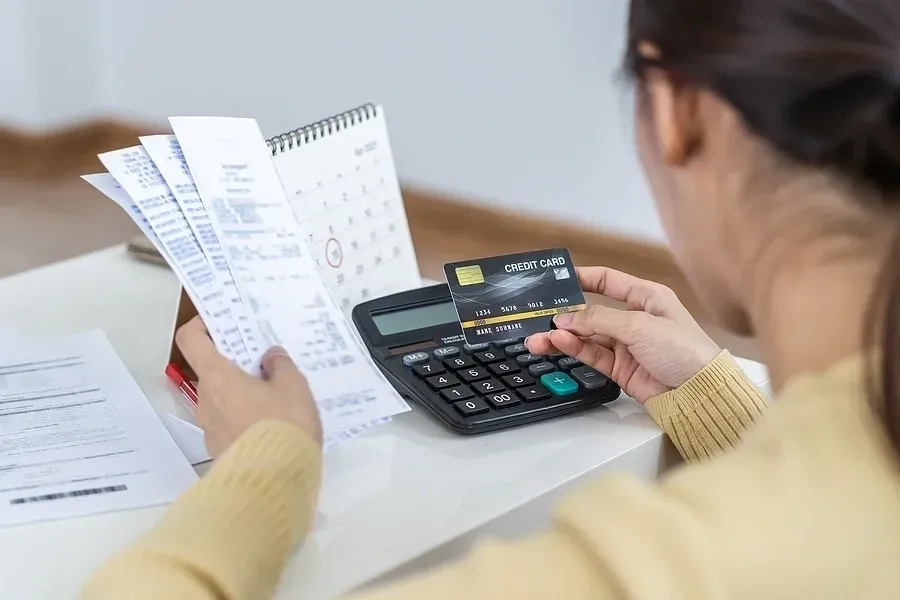If you file for bankruptcy protection, you need to list all creditors and the amounts owed to each. However, there are some people that you might owe money to that you don’t want to know that you’re filing bankruptcy, such as family members and friends. Unfortunately, you are legally required to disclose all creditors in your bankruptcy filing. Here are some things to consider when you owe family members money before you declare bankruptcy.
Let Them Hear About Your Bankruptcy From You First
Before you list any family members or friends as creditors in your bankruptcy case, let them know that you’re filing. Let them know that you’ll be including them as a part of your bankruptcy case. If they ask why you’re including them and what they owe, tell them honestly. You don’t want to make anyone mad, but you want them to know that you’re filing bankruptcy and want to pay them back.
It can be embarrassing to let a loved one know that you are in a bad financial situation. After all, people generally want other people to think that they’re doing well. However, if you skip letting them know about the bankruptcy filing, they will hear about it from a court notice about your bankruptcy. It is much better to tell them in person or on the phone, where they can ask questions and understand what’s going on.
Explain That You Must List All Debts in Bankruptcy
Explain to them that by law you have to list all debts in your bankruptcy case. You can’t file for Chapter 7 bankruptcy without listing all your debts, including medical and credit card bills, child support, and even parking tickets. This includes less formal debts, including money that you owe to family and friends.
Whether you have a verbal agreement or a more formalized plan, you still need to include this debt, to be compliant with the law. If they ask to be left out of your bankruptcy filing, be honest. Explain to them that you’re including everyone who is owed money in your bankruptcy case because it is required by law.
Assure Them You’ll Still Pay Them Back
To address their concerns about not getting their money if you file bankruptcy, assure them that you still plan to pay them back. Filing bankruptcy does not mean that you won’t pay them what you owe. They might be concerned that you will try to discharge their debt like other creditors. Be truthful that you need to file bankruptcy because of the cumulation of other debts and that you want to pay them back.
If certain circumstances, such as a job loss, death in the family, or unforeseen medical crisis, contributed to your need to declare bankruptcy, be sure to let them know what happened. Even as your friend or loved one, they may not know the intimate details of your financial life. While you don’t have to let them know every detail, it can be helpful for them to understand the circumstances of what happened and what led to the decision to declare bankruptcy.
You Can Still Pay Debts Voluntarily After Bankruptcy is Over
After your bankruptcy is over, you can still voluntarily pay some of your debts. This is true for both discharged and unsecured debts. Filing bankruptcy doesn’t mean that you only have to pay the amount that the courts decide. Even if the courts discharge part of the debt you owe your family member, you can still pay them back. There is no law preventing you from voluntarily paying them back at any point.
Being a Creditor Doesn’t Require Them to Do Anything
Your family member might be worried that being a creditor in your bankruptcy case will be a lot of work. However, this isn’t the case. A creditor doesn’t have to do anything special after you list them in your bankruptcy case. They don’t have to reduce the amount owed or negotiate with you, and they don’t even have to come to court.
Contact a Minnesota Bankruptcy Lawyer
Filing for bankruptcy can be emotional especially when it involves family members or friends. Having the help of a skilled and compassionate Minnesota bankruptcy lawyer can help to alleviate some of the stress and challenges associated with filing bankruptcy. Contact Kain + Henehan by calling (612) 438-8006 or filling out the online form. We can help you file a bankruptcy case and will help you answer all of your questions about filing for bankruptcy.

